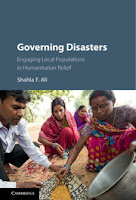Special Issue on Mediation in Contemporary China: Continuity and Change
Guest Editors:
Fu Hualing and Michael Palmer
Journal of Comparative Law
April 2016, Vol. X, Issue 2
Introduction (pp 1-24): The main purpose of this Special Issue is to introduce readers to some of the key developments now taking place in mediation as a form of dispute resolution in China, a society in which mediation has long been a central processual and ideological feature of its legal culture. Generally speaking, there is in the People’s Republic of China (‘PRC’) a number of different institutional contexts within which mediation is used for handling disputes: ‘people’s mediation’, which is primarily a form of local community dispute resolution, judicial mediation carried out by judges in and around the court, administrative mediation as conducted by officials and often focused on specific areas of governmental responsibility (as, for example, is the case with environment disputes), mediation in arbitral proceedings, and private mediation carried out without specific institutional support. Over the past fifteen years or so, in response to the rapid economic and social changes taking place in mainland China (including, inter alia, a declining importance of the local community) there have been attempts to institutionalize mediation, to resource it better, and to give it more legitimacy and legal force. In handling cases that come before the courts, judicial mediation continues to be seen as a particularly useful process, offering flexibility and effectiveness in dispute resolution. Under the current Xi Jinping government, the Chinese Communist Party’s (‘CCP’) concern with political stability and social harmony has intensified and judges, people’s mediators, arbitrators and others have to consider the social and political impact of what they do, even more so now than in the past...
"Rethinking the Mediation Campaign" (pp 44-64)
In the course of legal development in contemporary China, mediation (tiaojie) has attracted wide domestic and international attention because not only it carries heavy traditional social and culture value of China as an ‘oriental experience’, but also because in recent years the process has been increasingly deployed as a means of extra-judicial control to deal with social conflicts and to support the political regime in China’s bumpy course toward a market economy and rule of law reform. Against this background and the promise made by the new leadership installed in 2012 to promote the country’s development under the rule of law this article critically examines the campaign to promote mediation in China in recent years and considers whether a new direction is emerging in the changed political environment. Following this Introduction, the first section highlights the campaign to systemize mediation as a legal mechanism in the political framework in China, particularly after 2008; the second and third sections review the debates on the political promotion of mediation and critically assesses the effectiveness of its implementation from judicial perspective; sections four and five look at some signs for a new direction and the difficult path ahead, and offer reflections...
"Mediation in Contemporary China: Thinking About Reform" (pp 65-83)
Mediation, a popular mechanism for resolving disputes in Chinese society, is believed to be an important process for realizing the official goal of a harmonious society in China. The wide acceptance and adoption of mediation in daily life justifies a serious consideration of the ‘normalizing’ of mediation as a discipline in legal studies. The promotion of “grand mediation” (da tiaojie) and the unification and consolidation of the system of mediatory justice in the People’s Republic of China (‘PRC’) provide rich theoretical potential for the study of a number of substantive aspects of mediation. The highly practical nature of mediation requires us to consider its institutionalization and professionalization. As such, skill-based teaching and study of the practical dimensions of this process constitute an important part of mediation as a discipline, supplementing theoretical analysis of mediation...
"When Local Meets International: Mediation Combined with Arbitration in China and its Prospective Reform in a Comparative Context" (pp 84-105)
In line with its remarkable economic growth over the past few decades, there has been a dramatic increase in the number of commercial disputes in the People’s Republic of China (hereinafter referred to as ‘China’) in recent years. A significant portion of the disputes are resolved by alternative dispute resolution. The leading arbitration institution in China, the China International Economic and Trade Arbitration Commission (CIETAC), reported that the total number of cases which it accepted in the year 2014 was 1610, more than a double the caseload when compared to the year 2000. The emergent need to resolve disputes in a more efficient manner, coupled with the long-standing tradition of mediation, has created the opportunity for med-arb practice to thrive. Currently, approximately 20% to 30% of the caseload of CIETAC is resolved by med-arb...
"Mass-Claims Mediation in China" (pp 142-157)
Though China has experienced multiple and severe disasters since ancient times, its approaches to addressing mass claims issues through mediation by courts and grassroots entities is undergoing a process of reform and change. The selection of recent disasters, whether natural or human-induced, include the Severe Acute Respiratory Syndrome epidemic (‘the SARS Incident’), the earthquake that struck Wenchuan County, Sichuan Province in China in 2008 (‘the Wenchuan Earthquake’) and the Sanlu contaminated milk powder incident (‘the Sanlu Milk Contamination Incident’). The mass claims arising out of these disasters illustrate the continued preference for settling wide-scale claims outside of court. This settlement tendency alongside continued attention to strengthening the rule of law in China, naturally gives rise to questions regarding how such processes might simultaneously advance due process, transparency and avenues for appeal. Through examining China’s mediated response to disaster events experienced in recent years, this essay aims to provide a brief overview of China’s recent approaches to post-disaster governance, an evaluation of the country’s achievements to date, an analysis of challenges ahead and some suggestions for improving the existing approaches and mechanisms drawing on existing lessons learned...




